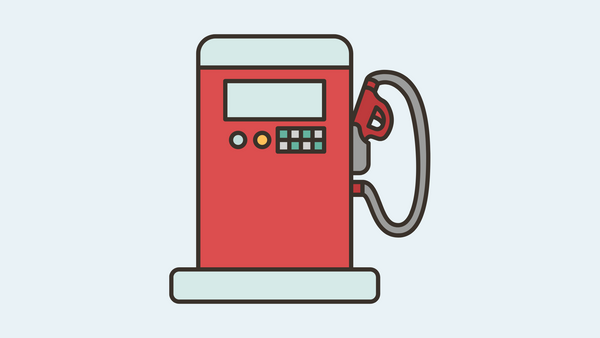
I'll take public transit
The national average is $4.896 according to AAA. So, let’s call it $5 per gallon. That means it will cost me over $100 to fill up my 23-gallon gas-guzzling SUV. Ouch.
I’m one of the typical Americans that drives an SUV. It’s a Toyota 4Runner. I love it. It is both luxurious and rugged. On the occasions that we are outdoors in rough areas hiking or for the odd heavy snow event, the four-wheel-drive comes in handy.
It’s also far more vehicle than I need.
I do “commute” when school is in because I drive our daughter to school in the morning. My wife picks her up. Since we both work from home that is the bulk of our driving, other than necessary errands.
Long before gas prices started rising I was thinking about buying a sedan that gets good gas mileage. I’m not a full-blown environmentalist, but I do recognize that we have some environmental challenges ahead of us, and driving not one, but two (my wife also has a larger SUV) gas-guzzling vehicles just doesn’t feel right.
Add my environmental guilt to the impact that gas prices are having on my wallet. The national average is $4.896 according to AAA. So, let’s call it $5 per gallon. That means it will cost me over $100 to fill up my 23-gallon gas-guzzling SUV. Ouch.
I’d like to believe that public transit is an answer to both higher gas prices and fewer vehicles emitting gases into the atmosphere. But as far as helping with gas prices it doesn’t look like that is the case. Plus, many American cities just don't have enough public transit options.
The UK is known for its public transit, yet its gas prices just hit $8.60 per gallon. Using a term stolen I heard from my daughter’s allergist yesterday, $8.60 per gallon is an “acute insult”. Have some fun this coming week and work that phrase into your life.
Reading the Tea Leaves
So, what are the downstream effects when gas prices soar?
Fewer people travel. That means this summer could see fewer people taking vacations. Whether they drive or fly. Because if they fly, gas prices are going to impact the cost of their airline ticket, which is already up 25%.
Less travel equates to lower hotel occupancy.
On and on we go, further downstream, until layoffs kick in.
We won't know until the end of the summer if this scenario, higher gas prices, truly impact travel. But, combining high gas prices with a lower consumer savings balance and people have less to spend.
Enjoy this post?
Please consider sharing it with other people who might be interested in this type of content.
Or, if you have suggestions for topics you'd like me to cover just hit reply and send me your suggestions.